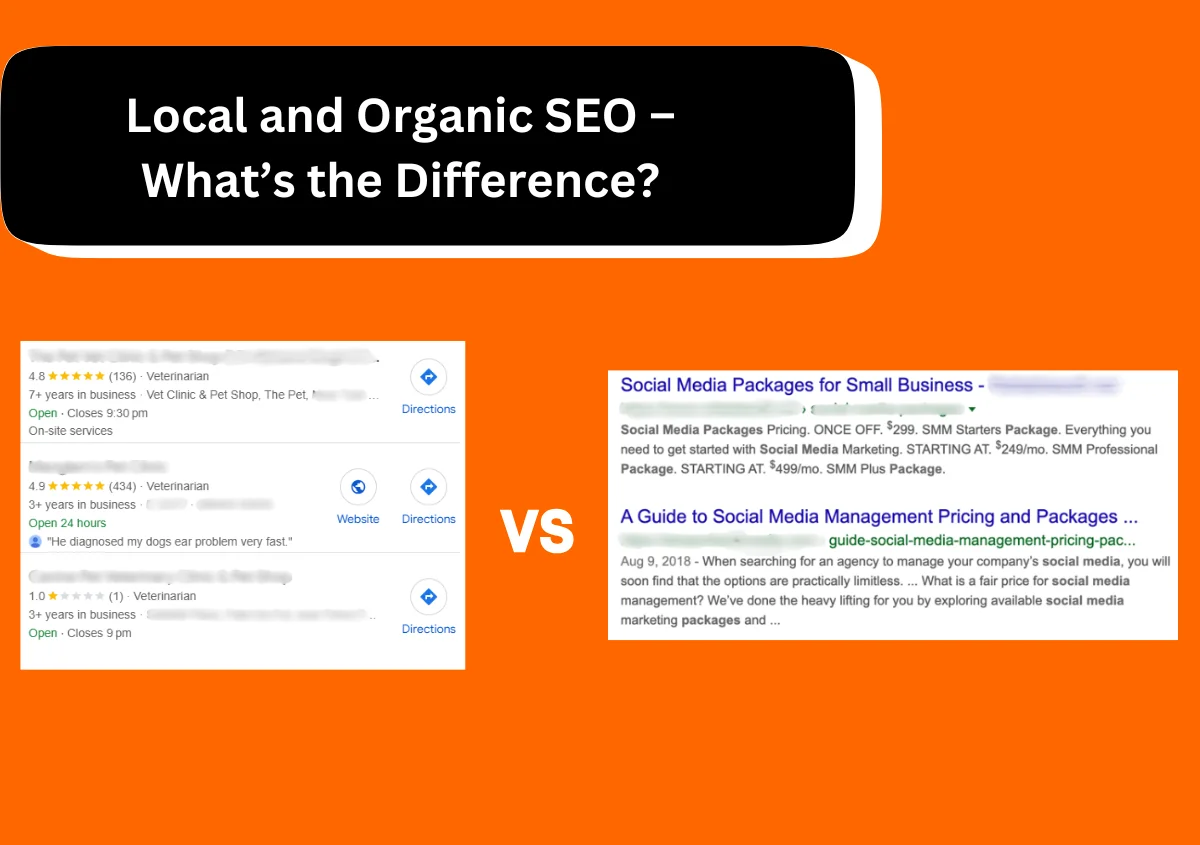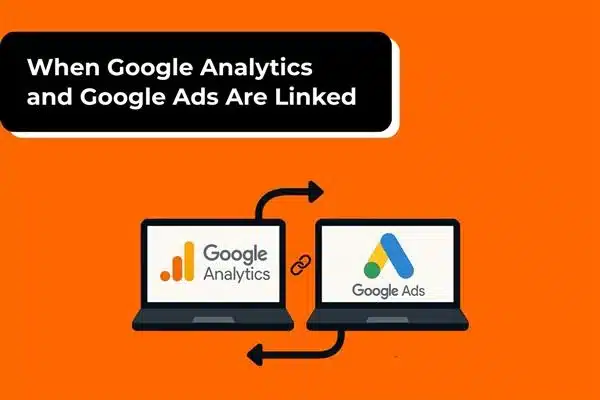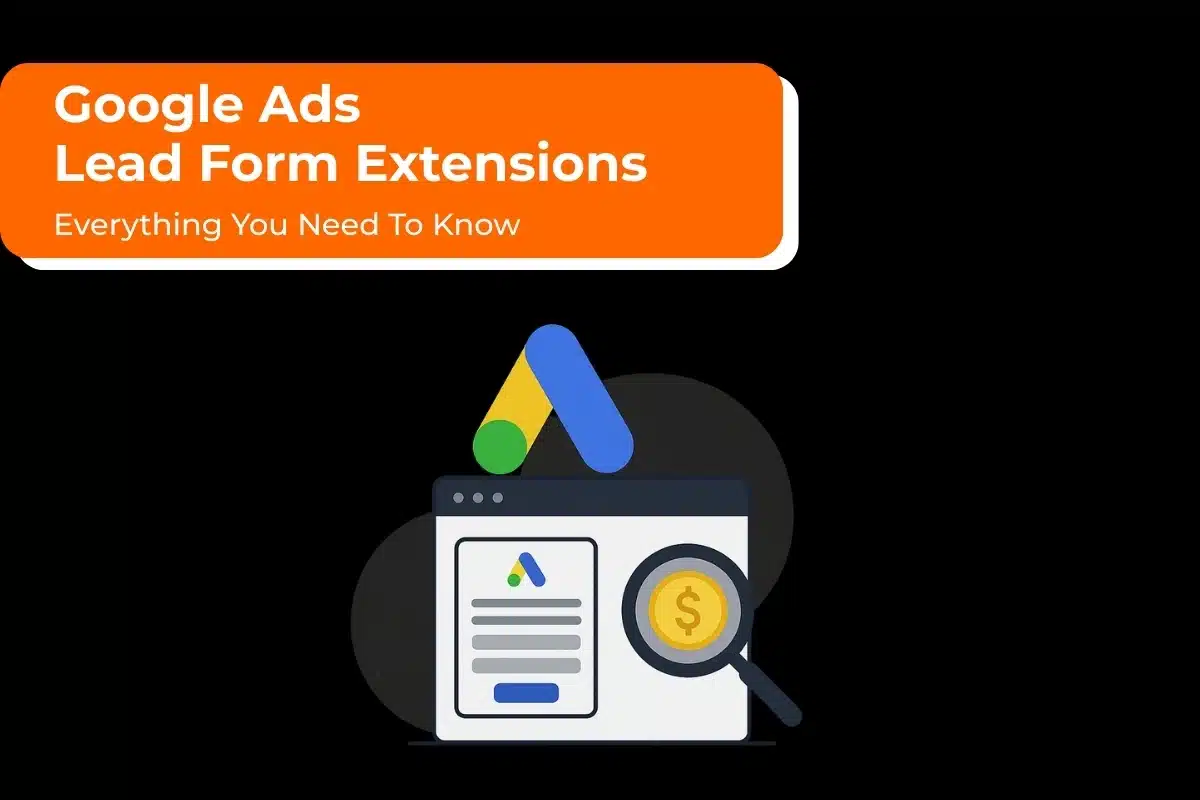We’ve all heard about SEO a million times. But as a business owner, you need to know something more—what is the difference between local and organic SEO?
Picture this: you’re looking for a café nearby, and Google Maps points you right to a cozy spot just a few blocks away. That’s local SEO in action. But when you’re searching for something broader, like ‘best leather shoes,’ you get results from all over the place—thanks to organic SEO.
See what’s happening here? You’re using SEO without even realizing it!
If you run a business, choosing the right SEO strategy can help make sure your ideal customers find you, whether they’re just down the street or browsing from miles away.
Today, we’ll explore these two types of SEO to help you understand their unique benefits, when to use them, and how each can help your business grow.
Must Read: Generate Organic Visits for Google Business Profile
Get Started with SEO Basics
SEO can feel like an overwhelming concept, but at its core, it’s just about getting your business seen online.
Imagine you’re running a small business—like a bakery or an online service—and you want to attract more customers. SEO is how you make that happen. Both local SEO and organic SEO serve this purpose but work differently. By understanding what each type of SEO does, you can get a better idea of how to use them for your business.
What is SEO, and Why is It So Important for Businesses?
So, what exactly is search engine optimization (SEO), and why should you care?
SEO is the process of making your website appear at the top of search results when someone looks for products or services like yours. With effective SEO, your business appears in front of more potential customers, increasing your chances of making a sale.
For businesses, SEO is invaluable because it allows you to build a steady stream of traffic without paying for ads. The more optimized your site, the more visitors you can attract organically—meaning free!
Whether you’re a new business or an established brand, optimizing your site makes it easier for customers to find and trust you. Remember, SEO might take time, but the long-term benefits can be transformative.
SEO vs. SEM—What’s the Difference?
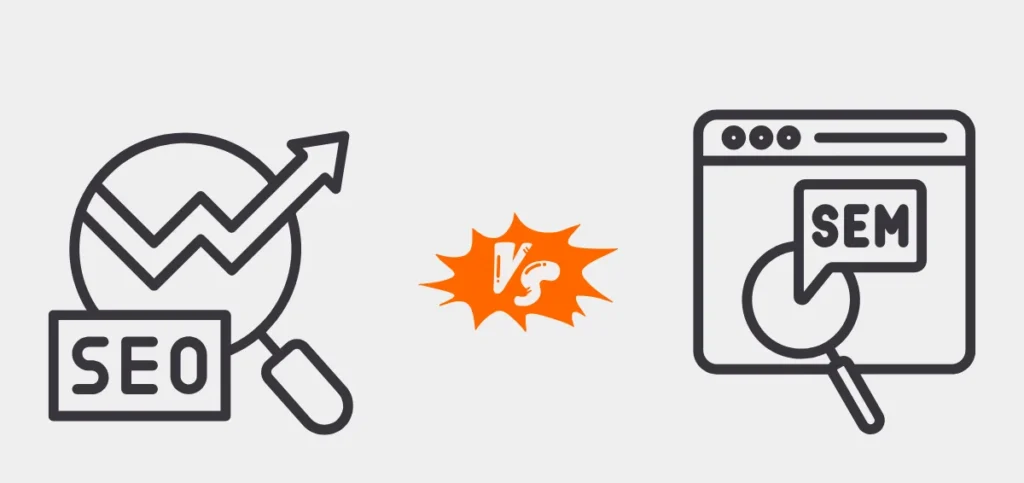
Ever heard the term SEM and wondered how it’s different from SEO?
While they both involve strategies to increase visibility, SEM stands for Search Engine Marketing and generally involves paid advertising, like Google Ads, to appear in search results. Think of SEM as the fast track—you pay to get noticed, whereas SEO is about building visibility over time.
While SEO focuses on organic (unpaid) results, SEM combines both paid and organic tactics to give your brand maximum exposure. Many businesses use a mix of SEO and SEM for quicker results.
So, while SEO builds a solid foundation, SEM can help you get in front of potential customers right now. Together, they make a powerful combo for getting noticed in the crowded online space.
Our digital marketing agency has both SEO and SEM experts to get your business the visibility it deserves. Contact us now to begin growing your business!
What is Local SEO?
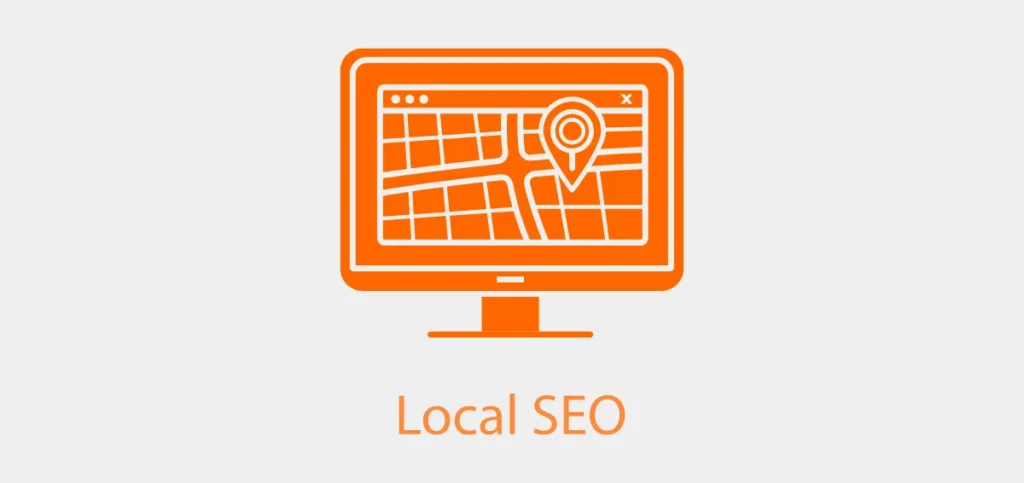
Think of local SEO as your go-to for attracting customers who are physically close to your business. Whether it’s appearing on Google Maps or ranking for ‘near me’ searches, local SEO is all about helping you stand out in your neighborhood or city.
Why Local SEO is Important for Local Businesses?
Local SEO is like having a billboard right where it matters most—near your potential customers!
For businesses with a physical presence, like a bakery, a dentist, or a bookstore, it can make all the difference. Here’s why local SEO is so valuable:
- Increased Local Visibility: You’re front and center for people in your community.
- Boosts Foot Traffic: Local SEO helps people nearby find your location.
- Power of ‘Near Me’ Searches: More customers are searching “near me,” and local SEO helps ensure they see your business.
When customers search for things like ‘best pizza near me’, you want to show up. If you’re serving your local area, local SEO can be a smart move for your business growth.
How to Improve Your Local Search Rankings?
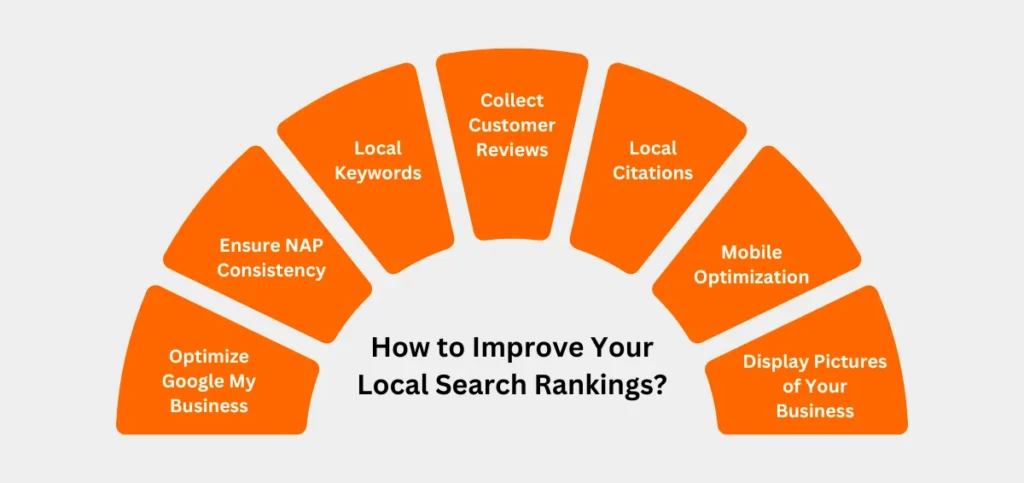
To make the most of local SEO, here are some steps to follow:
- Optimize Google My Business: Google holds a massive 90% of the global search engine market share. That’s why it’s super important to have a Google Business Profile for each of your locations. Add photos, your exact address, and links to your website to rank higher in local search results.
- Ensure NAP Consistency: Consistency is key here! Your Name, Address, and Phone number (or NAP for short) should match exactly across all your online listings, like your website, social media, and local directories.
- Local Keywords: Think of local keywords as your way of telling Google where you are! Using your city, neighborhood, or even popular local landmarks alongside your business keywords helps customers nearby find you more easily. For example, instead of just “plumber,” go for ‘plumber in NYC’.
- Collect Customer Reviews: When happy customers share their experiences, it not only builds trust with potential new customers but also shows Google that people value your business. Encourage satisfied customers to leave reviews on your Google profile or Yelp—it can really help boost your rankings.
- Local Citations: Mentions of your business on other sites, like directories, blogs, or even listings on sites like Yelp, Yellow Pages, and TripAdvisor signal to Google that your business is well-established. By adding your business to a few local directories, Google has more reasons to rank you higher and make you visible to the customers in your area.
- Mobile Optimization: When people are on the go and looking for something nearby, they usually use their phones. In fact, mobile users account for 63 percent of organic search engine visits in the US. So, make sure your website and listings are easy to find on mobile devices.
- Display Pictures of Your Business: Listings with photos are more likely to get clicks when people are searching for directions. Use clear, well-lit photos that show off your business. This will help potential customers picture themselves there.
Following these tips can boost your local SEO, making it easier for nearby customers to find you. If your goal is to draw people to your physical location, these strategies will help you make that happen.
Need help optimizing your local SEO? Our SEO specialist can help set up your Google My Business profile and boost your local rankings.
What is Organic SEO?
Let’s start with the basics. Organic SEO is the process of optimizing your website to rank in non-local search results.
Unlike local SEO, which zeroes in on geographic locations, organic SEO targets a broader audience, which is great for businesses aiming to reach customers in various places—even globally.
Did you know that Google currently holds over 87% in the US? With organic SEO strategies, this is a goldmine of opportunities to grow your business.
Why Organic SEO is Great for Businesses?
Organic SEO is a fantastic choice if you want to build a broad customer base that’s not restricted by location. Here’s why:
- Broader Reach: You can connect with customers worldwide or across different regions.
- Credibility Boost: Ranking high organically builds trust; people see you as a reputable brand.
- Sustained Growth: Once you establish high rankings, the benefits last long-term without constant ad spend.
For example, if you’re an online store selling eco-friendly products, organic SEO can help you appear when someone searches for “sustainable products.” Unlike local SEO, which targets nearby customers, organic SEO ensures you reach those interested in your products regardless of where they’re located. It’s a great way to grow if you’re planning for the long haul and a global customer base.
6 Key Strategies for Organic SEO
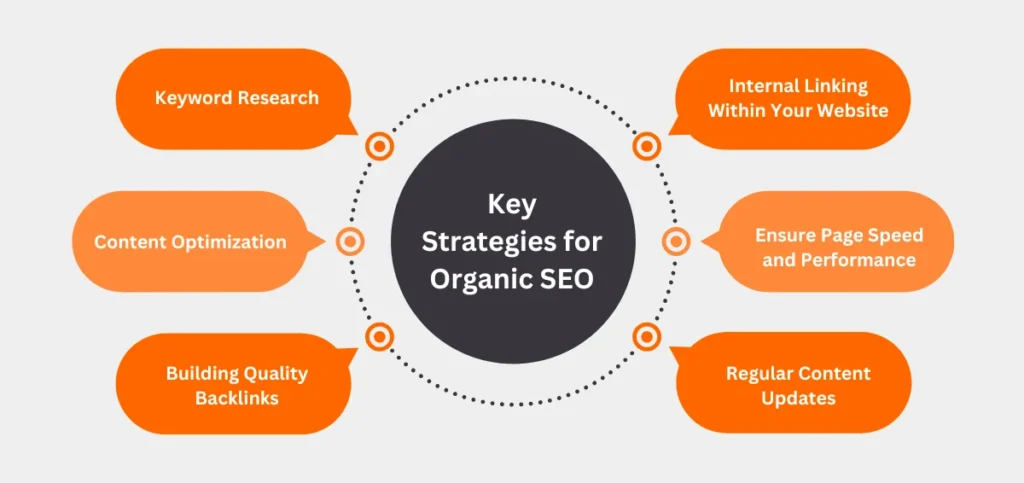
To succeed with organic SEO, you need a game plan:
- Keyword Research: Do a little keyword research to find out what people are searching for in your area. If you’re near a famous landmark, use that name in your content. This will help people find you when they’re looking for something nearby. Tools like Google Keyword Planner help discover the terms your target audience uses.
- Content Optimization: Once you know your keywords, try weaving them naturally into your web pages, blog posts, and those short meta descriptions that show up in search results. But don’t overdo it; keep it sounding natural. This way, Google and other search engines can clearly see what you’re about and hopefully rank you a little higher.
- Building Quality Backlinks: When a reputable site links to you, it’s like telling Google, “Hey, this site’s worth checking out!” So, look for opportunities to team up with well-known sites in your industry. Not only do backlinks improve your credibility, but they can also bring more visitors who are interested in what you have to offer.
- Internal Linking Within Your Website: Internal links make it easy for visitors to explore your site. Try linking to related pages so users stay longer and discover more of what you offer. Use keywords to create links that lead to your top-performing pages. It’s a simple trick to keep visitors engaged and help search engines understand your site structure.
- Ensure Page Speed and Performance: No one wants to wait around for a slow-loading website, and neither does Google. Work with your web developer to ensure your site is loading quickly. After all, a faster website means happier users, which can lead to more conversions.
- Regular Content Updates: Try to keep your blog, landing pages, and product descriptions up-to-date with the latest information. Fresh content shows Google that you’re active and relevant, and new content keeps visitors coming back for more. Plus, it’s an easy way to stay relevant and engaging to your audience.
With these strategies, you can make your website more appealing to search engines, drawing a steady stream of visitors. And remember, organic SEO takes time, but the payoff is worth it.
Ready to implement organic SEO? Our SEO services can help you develop winning content and keyword strategy.
Key Differences Between Local and Organic SEO
- Scope and Reach: Organic SEO helps you reach a broad or even global audience, while local SEO focuses on people in your city or neighborhood. So, if your customers are local, local SEO is your best bet; if you want a wider reach, go organic.
- Content Strategy: With organic SEO, you’ll be creating high-quality blog posts and other resources. For local SEO, your content will be more specific, like mentioning cities, neighborhoods, or local events to catch people searching for things nearby.
- Target Audience: Local SEO connects you with customers who are close by, while organic SEO attracts a broader audience without location limits. Each strategy reaches a different group of people, so think about who your ideal customers are.
- Search Results: For local searches, you often see maps and local packs (like ‘3 best pizza spots near me’), while organic SEO gives more traditional search links based on relevance.
- Keyword Targeting: Organic SEO uses keywords without location tags, like ‘best running shoes,’ while local SEO adds a location, like ‘best-running shoes in Boston.’
- Backlink Strategy: For organic SEO, backlinks from trusted industry sites help boost your rank. For local SEO, community websites and local directories are often more valuable, as they tie you into the local network.
- SERP Features and Appearance: Local results tend to include maps, business listings, and reviews directly on the search results page, while organic results look like standard text links.
If you’re still unsure which SEO approach is right for your business, we’re here to help. Let’s connect about what you need to reach your goals!
Click Here To Read All SEO Blogs.
How to Choose Between Local and Organic SEO for Your Business?
Evaluating Your Goals and Audience
Alright, here’s where you start: Who are you actually trying to reach?
If you’re aiming to get locals to walk through your doors, local SEO is the way to go. This will help you focus on reaching customers just around the corner.
On the other hand, if you’re targeting a broader group that could be from anywhere—even across the country—organic SEO may be a better fit. Think of it as deciding between hosting a local event or going online to reach a bigger crowd.
Budget Considerations and Long-Term Goals
When planning your SEO approach, consider your budget and how quickly you want results.
Local SEO often requires less of a financial commitment and can be perfect for smaller, location-based businesses. It helps you grow your visibility nearby without a huge budget.
Organic SEO is a longer-term investment that might need more time and resources but pays off with lasting results. Both approaches have their strengths, so think about what aligns with your business goals for the coming months or even years.
Using Both Local and Organic SEO for the Best Results
Good news—you don’t have to pick just one! In many cases, combining local and organic SEO creates the best of both worlds.
Imagine you’re building credibility and reaching a broader audience with organic SEO while also capturing local traffic that’s actively looking for services like yours. With both strategies, you’re expanding your reach, establishing your authority, and making it easier for anyone to find and trust your business.
Need a hand figuring out your perfect SEO mix? We’re here to help! Our SEO agency can help you blend these approaches to suit your unique business goals.
Best Practices for Local SEO in 2024
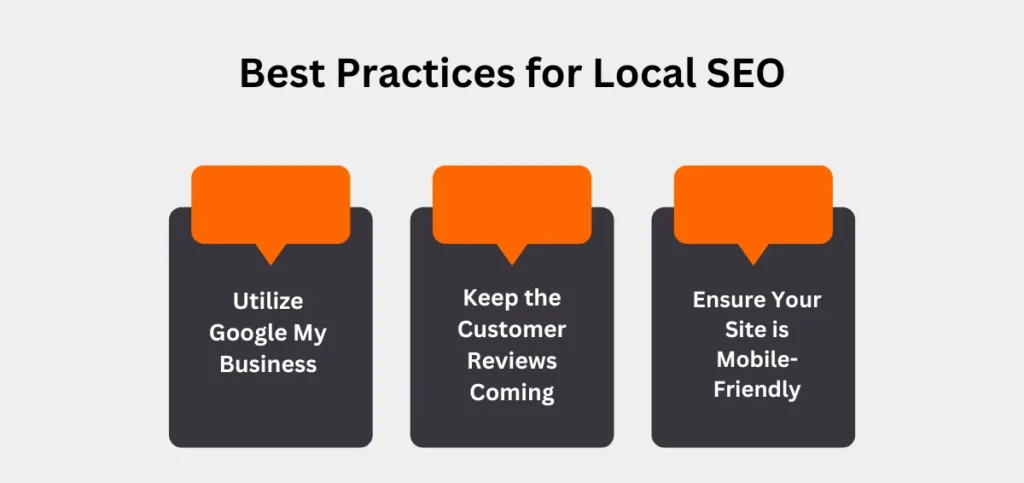
Utilize Google My Business
First things first—Google My Business is your best friend when it comes to local SEO.
Make sure your profile is fully filled out with your business hours, contact details, and photos, and update it regularly to keep it fresh. Adding in local keywords (like your city or neighborhood) can make it easier for nearby customers to find you.
Keep the Customer Reviews Coming
Positive reviews aren’t just good for your ego—they’re a powerful tool for local SEO!
Encourage customers to leave reviews. It will help build trust and improve your local search ranking. And don’t forget to reply to reviews—even the negative ones. It shows you care about customer feedback and are engaged with your community.
Ensure Your Site is Mobile-Friendly
With so many people searching on their phones, a mobile-friendly website is a must in 2024.
Make sure your site is easy to navigate, loads quickly, and looks great on smaller screens. If someone searches for ‘pizza near me’ on their phone, you want them to be able to find you without any hassle.
The right SEO strategy can help your business shine in local searches. Let our digital marketing specialist show you how.
Best Practices for Organic SEO in 2024
Create Quality Content and Improve User Experience
In 2024, organic SEO is all about putting the user first. That means creating content that’s not just stuffed with keywords but is actually valuable, informative, and engaging.
Imagine you’re writing or designing your site for your ideal customer—what would they want to see? On top of that, make sure your site loads quickly and is easy to navigate. A smooth user experience keeps people on your site longer and signals to search engines that your content is worth showing.
Build Quality Backlinks
Backlinks from reputable sites act like digital endorsements, telling search engines that your content is trustworthy and relevant.
Partner with reputable sites in your niche, guest post, or collaborate on content to earn quality backlinks. Yes, it does take some effort, but each link helps build your authority and make your site more visible.
Use Structured Data
Adding structured data (also called schema markup) helps search engines understand what your content is about.
This might mean adding details like product prices, ratings, or even events. When done right, it can improve your visibility in search results and might even give you a chance to appear in ‘rich snippets,’ those info boxes on search result pages.
Want to maximize your reach? Our search engine optimization agency can help you merge organic SEO with targeted paid ads for a stronger presence across search engines. Let’s work together!
Give Your Business a Visibility Boost!
Knowing the difference between local and organic SEO can make all the difference in reaching the right customers.
By combining both strategies, you can capture local attention and build a broader online presence.
Our search engine optimization services offer expert guidance on creating a balanced SEO strategy to help your business stand out from the crowd.

